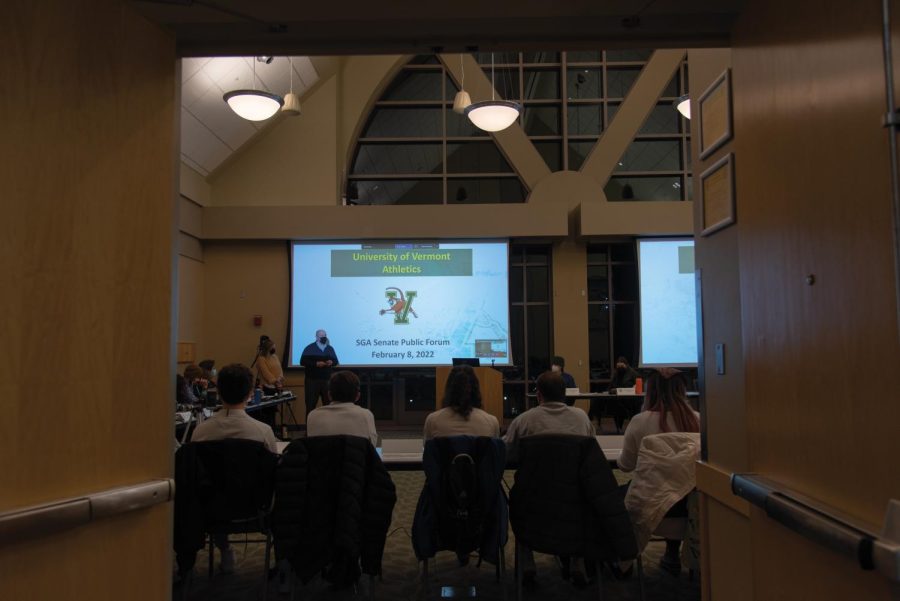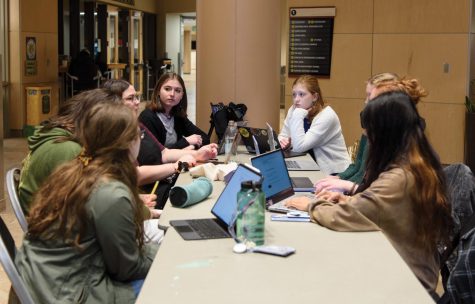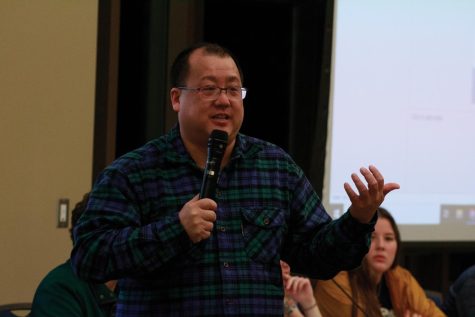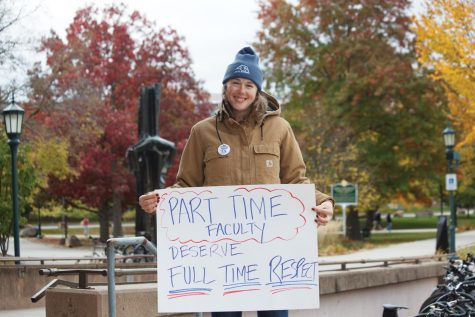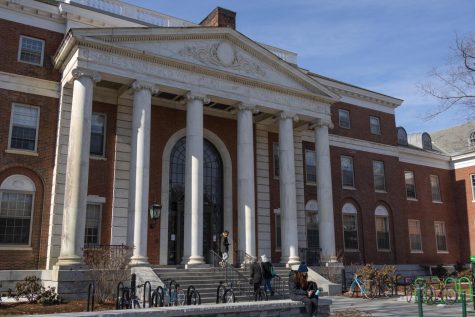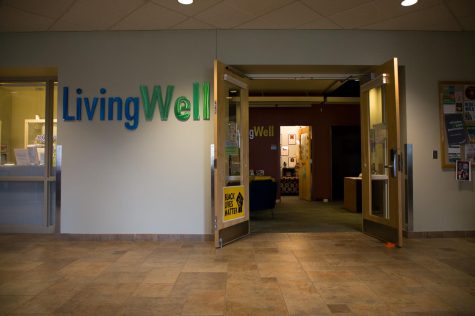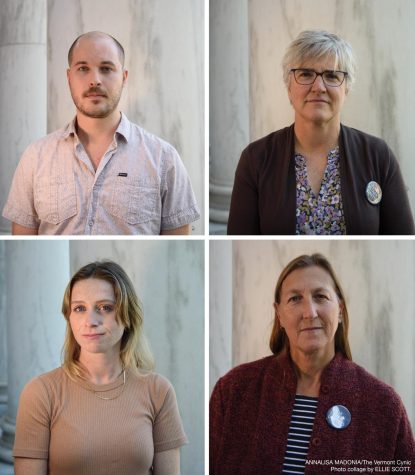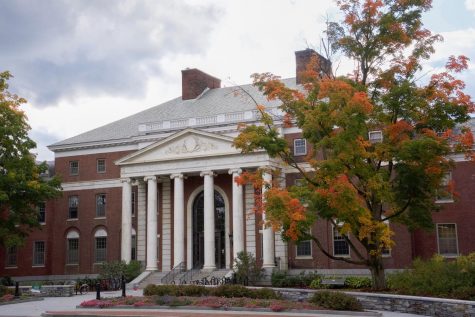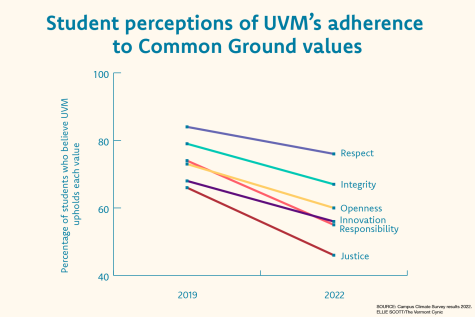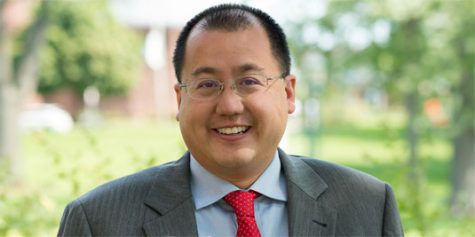Athletics works to end sexual violence
Director of Athletics Jeffrey Schulman and Cathleen Rahill, associate director of athletics presented at the weekly SGA meeting on Feb. 8.
In an effort to communicate with the UVM community, Director of Athletics Jeffrey Schulman and Cathleen Rahill, associate director of athletics, addressed sexual violence prevention and training within the athletic department at the Feb. 8 SGA meeting.
The presentation resulted from a push from student leaders confronting the athletic department’s lack of communication about their sexual violence and prevention training, said senior Olivija Stephens, vice president of SGA.
“We’ve sort of thought long and hard over the past several months about what we can do in terms of educating our student athletes and being part of the campus solution,” Schulman said.
Schulman and Rahill spoke about new, current and future initiatives within the athletic department that aim to educate UVM’s student athlete population.
The department has a partnership with HOPE Works, a non-profit organization that has committed themselves to end sexual violence, according to their website.
UVM athletics and HOPE Works have meetings with each sports team to speak on topics of consent, relationships and sexual violence prevention, Rahill said.
First-year student athletes must complete a course called Student Athlete Development, or EDPE 024, Rahill said. Within the course, athletes complete sexual misconduct modules containing information about consent, communication, power and identities.
Student athletes go through the Office of Affirmative Action and Equal Opportunity’s mandatory sexual assault training. The AAEO gave reporting resources and has the investigative process for sexual violence reviewed with the athletes, according to a handout from the Feb. 8 meeting.
Staff also has mandatory training through the AAEO covering sexual misconduct prevention, reporting and UVM’s adjudication process, according to the handout.
Additionally, athletes must sign a code of conduct which has a comprehensive sexual misconduct policy stated within.
“Athletes are responsible for knowing and abiding by the provisions of the University’s Discrimination, Harassment and Sexual Misconduct Policy,” the policy stated.
The athletic department is currently in the midst of preliminary conversations with an organization called Men Can Stop Rape, about adding their messaging to UVM’s education for male student athletes, Rahill said.
This organization stems from the idea that men need to help with prevention and ending sexual violence. MCSR hopes to empower men to enforce a culture free from sexual violence, according to their website.
“We’re always evaluating what we’re doing and Men Can Stop Rape is good example of that,” Schulman said.
Senior Maddie Henson, chair of the committee of student action and well-being, junior senator Taylor MacHarrie and Stephens suggested an increased emphasis on training upperclassmen and team captains to improve culture at a Nov. 19, 2021 meeting with the athletic department, Stephens said.
“That recommendation came from my own anecdotal experience on sports teams and how when I was a first-year student or a freshman in high school on my teams, I was definitely a lot more nervous and a lot less likely to speak up if I saw something that bothered me,” Stephens said.
Stephens hopes to see further bystander intervention and leadership training implemented into the sexual violence prevention and training aimed towards those influential upperclassmen, she said.
Stephens and other senate members are looking forward to further communication with the athletic department and for the student body to be made aware of progress that has been made through honoring the Title IX Advisory Committee’s demands that were made last year, she said.


